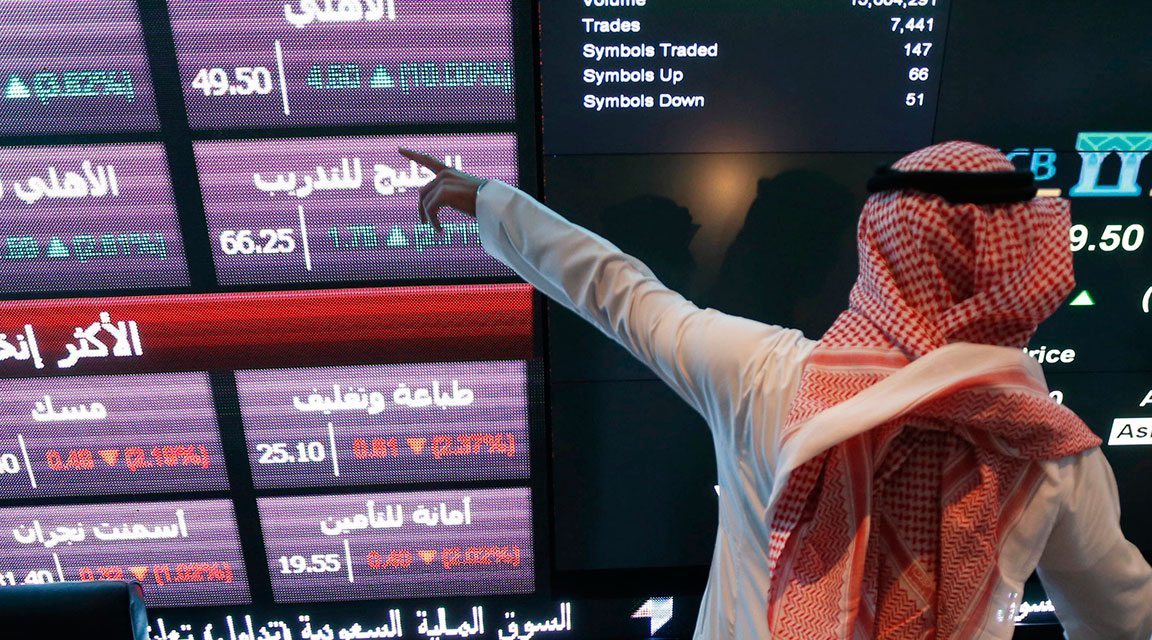

Timing of IPO suggests government objective is creating wealth not raising funds
The prospect of getting the most valuable company in the world listed on your stock market is an honour like no other. To actually be able to do that will be a dream come true for any policymaker anywhere in the world.
Saudi Arabias Deputy Crown Prince Mohammed bin Salman al-Saud, however, is not your average economic mover and shaker. The powerful royal controls the state-owned oil producer Saudi Aramco and said Riyadh intends to sell shares in the energy giant, which could make it the worlds first listed trillion-dollar company.
Capital Economics estimates Aramco could be worth anything from $1 trillion to upwards of $10 trillion. However, in a research note, the London-based firm added that a full and complete privatisation of Aramcos core activities seems highly unlikely, although a small stake could be listed on the Saudi Stock Exchange (Tadawul).
Prized asset
Estimates aside, it really is difficult to value a behemoth like Aramco or gauge the power it holds over the global oil trade. It is equally difficult to understand why Saudi Arabia, the biggest oil producer in Opecs basket, would want to give away control of its most prized asset, even if it decides to do it in smallest possible part.
In an interview with The Economist on 4 January, the Prince said that a decision will be taken in the next few months and that a listing would make the company more transparent. Personally Im enthusiastic about this step, he was quoted as saying. I believe it is in the interest of the Saudi market, and it is in the interest of Aramco, and it is for the interest of more transparency, and to counter corruption, if any, that may be circling around Aramco.
The Prince has already held high-level meetings on Aramcos initial public offering (IPO) and options discussed range from listing the core business of oil production to selling shares only in the downstream firms. Initial discussions are reported to involve floating about 5 per cent of the company.
Prince Mohammed took control of Saudi Aramco in 2015 after he become Deputy Crown Prince. He heads the Supreme Council Of Saudi Arabian Oil Company (Saudi Aramco), which was formed to replace the Supreme Council of Petroleum and Mineral Affairs.
Reform driver
He has been the driver of economic reform agenda in the kingdom, ever since his rise within the royal ranks. Saudi Arabia, the regions largest economy, is implementing sweeping changes as it seeks to cut its dependence on oil and diversify its revenue streams by introducing reforms such as introduction of taxation, a review of subsidies and the limiting of public sector wages.
Top of these reforms is the management of state assets and wider structural changes in the national economy. The kingdom over the next five years intends to privatise a range of sectors and economic activities, Saudi Ministry of Finance said on 28 December, without elaborating which of the sectors the government intends to privatise.
Many had thought that some of the smaller state-owned energy assets will come up for privatisation over the next few years but hardly anybody would have guessed Aramco to be on that list. In fact, mentioning Aramco as the first asset has come as a complete surprise.
Timing of Princes announcement is also quite peculiar. With crude reserves of about 265bn barrels, over 15 per cent of all global oil deposits, Aramco is front and centre of the energy price war waged by Saudi Arabia.
Opec has effectively taken out all output barriers, which has seen the Brent crude falling from over $100 a barrel in 2014 down to new 11-year lows of close to $30 a barrel now. In such a scenario, what will be the investor appetite for an energy asset like Aramco? Limited, perhaps, is the best guess. With oil prices not expected to claw their way back up anytime soon, the appetite for such an asset logically, is not going to improve either in the foreseeable future.
Market slump
The likes of Saudi Basic Industries Corporation (Sabic) and other petrochemical companies listed on the Tadawul have not done particularly well in the wake of falling oil prices and receding demand for energy consumption. During the past year Sabic has fallen from the highs of SR110.50 to lows of SR66. It closed trade on 7 January at SR67.71.
If the logic behind a stake sale in Aramco is to raise funds for the state to compensate for lost oil revenues, now, perhaps, is not a good time as the kingdom is very unlikely to get the valuations it, most certainly, will desire for the crown jewel. But if the state wants to create the best possible wealth-making opportunity for its citizens as part of its reform agenda, now is the time to let the Saudi public have a piece of Aramco with a strong chance they could see their investment grow many folds in years to come as oil prices ascend.
You might also like...

Iraq oil project reaches 70% completion
26 April 2024

Samana announces $272m Dubai Lake Views project
26 April 2024

Iraq signs deal to develop the Akkas gas field
25 April 2024

Emaar appoints beachfront project contractor
25 April 2024
A MEED Subscription...
Subscribe or upgrade your current MEED.com package to support your strategic planning with the MENA region’s best source of business information. Proceed to our online shop below to find out more about the features in each package.








